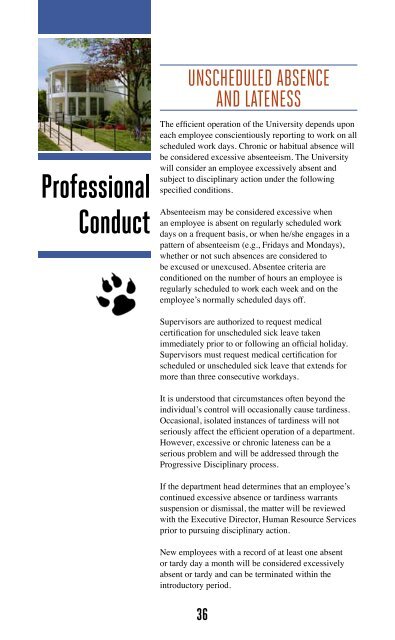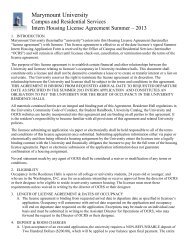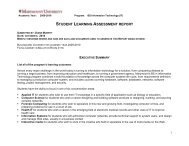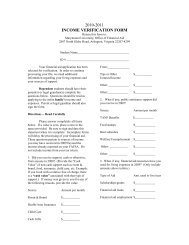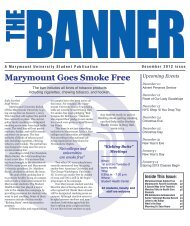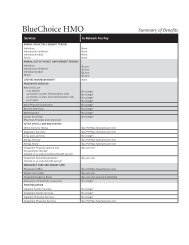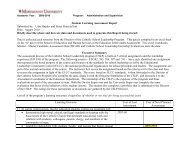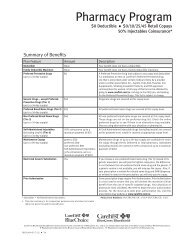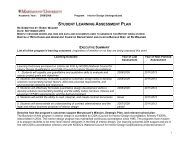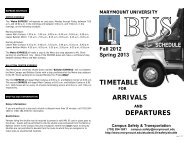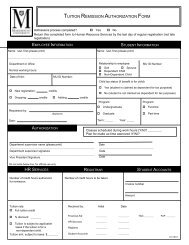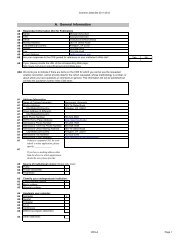EmployEE Handbook - Marymount University
EmployEE Handbook - Marymount University
EmployEE Handbook - Marymount University
Create successful ePaper yourself
Turn your PDF publications into a flip-book with our unique Google optimized e-Paper software.
Professional<br />
Conduct<br />
Unscheduled Absence<br />
and Lateness<br />
The efficient operation of the <strong>University</strong> depends upon<br />
each employee conscientiously reporting to work on all<br />
scheduled work days. Chronic or habitual absence will<br />
be considered excessive absenteeism. The <strong>University</strong><br />
will consider an employee excessively absent and<br />
subject to disciplinary action under the following<br />
specified conditions.<br />
Absenteeism may be considered excessive when<br />
an employee is absent on regularly scheduled work<br />
days on a frequent basis, or when he/she engages in a<br />
pattern of absenteeism (e.g., Fridays and Mondays),<br />
whether or not such absences are considered to<br />
be excused or unexcused. Absentee criteria are<br />
conditioned on the number of hours an employee is<br />
regularly scheduled to work each week and on the<br />
employee’s normally scheduled days off.<br />
Supervisors are authorized to request medical<br />
certification for unscheduled sick leave taken<br />
immediately prior to or following an official holiday.<br />
Supervisors must request medical certification for<br />
scheduled or unscheduled sick leave that extends for<br />
more than three consecutive workdays.<br />
It is understood that circumstances often beyond the<br />
individual’s control will occasionally cause tardiness.<br />
Occasional, isolated instances of tardiness will not<br />
seriously affect the efficient operation of a department.<br />
However, excessive or chronic lateness can be a<br />
serious problem and will be addressed through the<br />
Progressive Disciplinary process.<br />
If the department head determines that an employee’s<br />
continued excessive absence or tardiness warrants<br />
suspension or dismissal, the matter will be reviewed<br />
with the Executive Director, Human Resource Services<br />
prior to pursuing disciplinary action.<br />
New employees with a record of at least one absent<br />
or tardy day a month will be considered excessively<br />
absent or tardy and can be terminated within the<br />
introductory period.<br />
36


